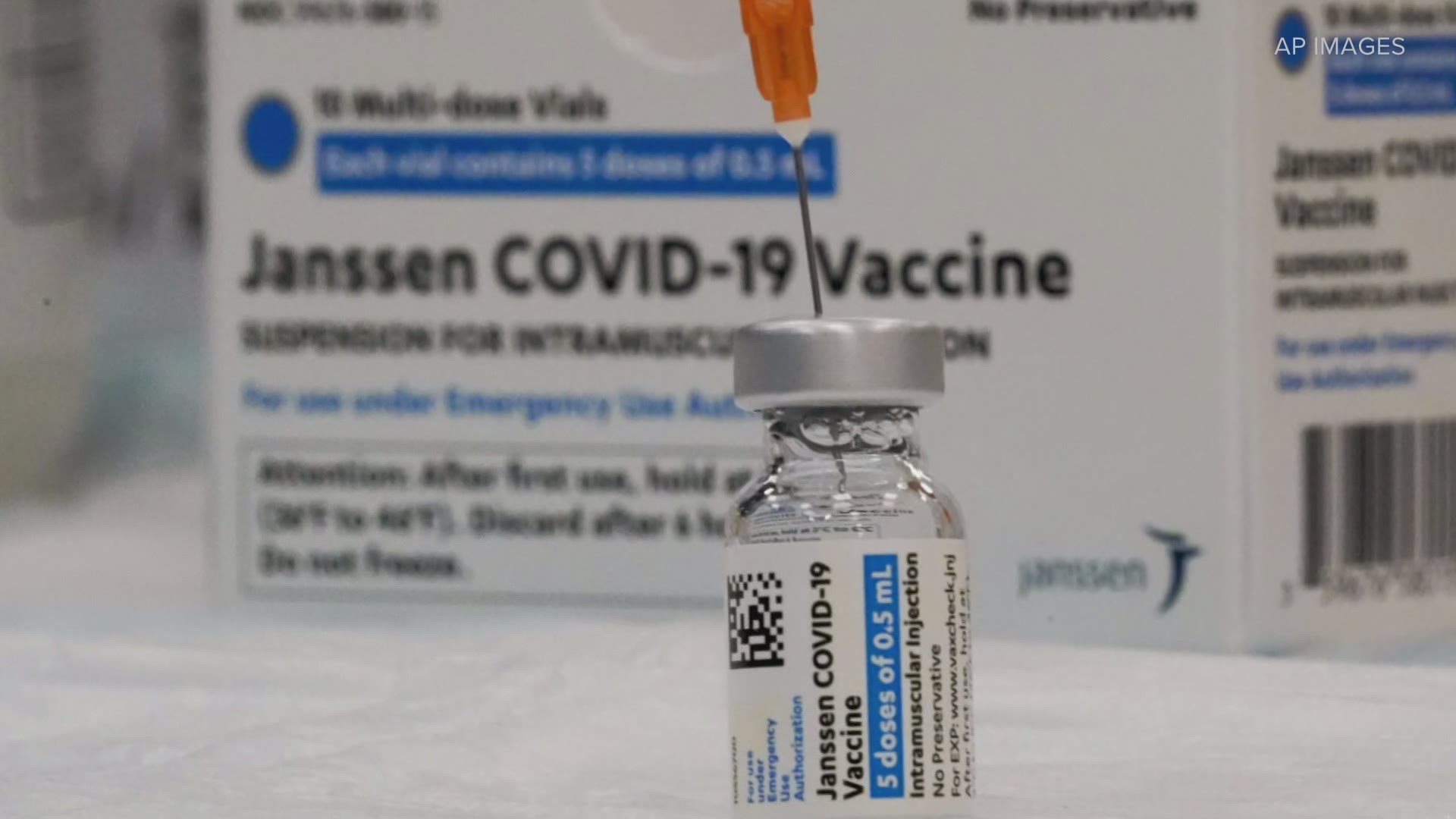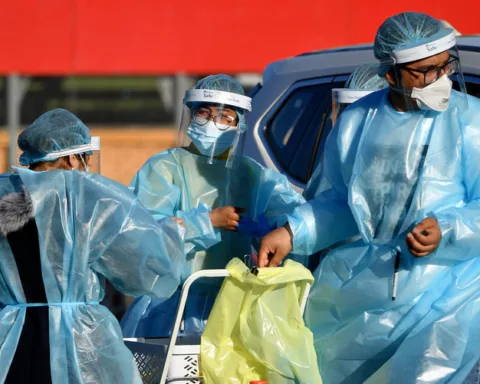The CDC and FDA are reviewing data involving six reported U.S. cases of a rare and severe type of blood clot in individuals after receiving the Johnson & Johnson.
“In these cases, a type of blood clot called cerebral venous sinus thrombosis (CVST) was seen in combination with low levels of blood platelets (thrombocytopenia),” the agencies said in a joint news release. “All six cases occurred among women between the ages of 18 and 48, and symptoms occurred six to 13 days after vaccination.”
These types of blood clots are considered unusual in that the typical treatment of heparin could actually cause more harm. The agencies said they were recommending the pause in part, “to ensure that the health care provider community is aware of the potential for these adverse events and can plan for proper recognition and management due to the unique treatment required with this type of blood clot,” the FDA and CDC said in a news release.
People who received the Johnson & Johnson vaccine are encouraged to watch for the following signs within three weeks of vaccination:
- Severe headache,
- Abdominal pain,
- Leg pain, and
- Shortness of breath
Dr. Joy Engblade, NIHD’s Chief Medical Officer, said Johnson & Johnson (Janssen) vaccine recipients feeling these symptoms should seek immediate medical care. “In most clotting cases, the drug heparin would be used for treatment,” Dr. Engblade explained. “However, in this case, heparin may be dangerous for the patient and may require alternate treatments. Caution should be taken in each case.”
The California Department of Public Health said pausing the use of the Johnson & Johnson vaccine would continue until further direction from health and safety experts is available. Additionally, the state will convene the Western States Scientific Safety Review Workgroup to review the federal government’s information on this issue. It is estimated this review will take several days.
Dr. Engblade said this turn of events should not dissuade people from seeking other COVID-19 vaccinations. “The vaccines remain very safe, and NIHD encourages people to discuss their options with their primary care providers if they have any concerns about receiving a vaccination,” she said.
“CDC will convene a meeting of the Advisory Committee on Immunization Practices (ACIP) on Wednesday to further review these cases and assess their potential significance. FDA will review that analysis as it also investigates these cases. Until that process is complete, we are recommending a pause in the use of this vaccine out of an abundance of caution.”






